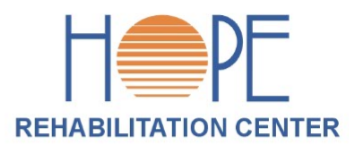Please make sure that you finish FAQ below.
HOPE is committed to sharing clinical and technical experience and expertise gained from working for almost two decades in prosthetics and orthotics. In response to inquiries from all over the world, we have assembled a list of questions that we are most frequently asked.
Yes. An orthotic and/or prosthetic device may bring change in your body in one way or another. Therefore, a physician’s / surgeon’ approval/prescription will ensure proper treatment of your physical condition for a better way of life. An initial consultation with us does not require a prescription.
Absolutely not! One of the most important things that you can have during this time is peace of mind. By coming in for a tour of the facility, introduction to our staff, and a view of different options for componentry and materials, you can reduce any anxieties or concerns you may have about the process after an amputation and during the fitting of your prosthesis. Our clients tell us that taking advantage of this opportunity made a positive difference in their pre- and post-operative mindset.
The person who ultimately makes that decision is your doctor. Because we have a rehab consultant for prosthetics, you can make an appointment to discuss this matter. We require a prescription either from your medical doctor or our consultant in order to begin fabrication of prosthesis. Evaluations and consultations for limbs are always done free of charge. Our staff will take every opportunity to consult with your physician regarding your amputation, any medical precautions, and anything that could affect your options or expected outcome.
We have one polio affected lady Prosthetist in our staff. An amputee is care taker of our Muzaffarabad unit. We welcome qualified & trained staff irrespective of any disability.
Because HOPE has a full-scale fabrication lab on-site, we are able to complete work very efficiently. For example, in modular system the check socket can be made next day depending upon the load of work. After try it takes few days for us to take note of alignment system of the prosthesis and the skin condition after putting body weight on the prosthesis through the socket interface. Amputee also needs a few days to learn balance on the new limb.
HOPE has quite a large number of clients that allow us to use their names for people who want information about HOPE. Upon request, you will be given a list of names of amputees who are relatively the same age and amputation level as you.
You do have a choice, although you may not realize it. Most amputees have little time to prepare for fitting a limb and find themselves numb with grief to see a low quality limb.
Prosthetics is a medical specialty few people are acquainted with, including many health care professionals. However, there are many differences among practitioners, and amputees and their families need to take the time to gather information and learn about the many options of limb fitting available with different practitioners.
We advise that you become an informed consumer. The Hope recommends that patients contact several prosthetic facilities and consult with each before making a choice. Talking to other amputees as well can help to educate a new amputee as to what options are available. In most cases, even if one prosthetist made you a preparatory artificial limb, you can select a different prosthetist to make your permanent prosthesis.
Is a term used to describe a group of disorders that affect movement control. It can be caused by injury to the brain before, during, or after birth. Cerebral palsy may be acquired after birth secondary to an accident, head injury or infections such as bacterial meningitis or viral encephalitis. Symptoms vary with each case.
HOPE offers no-obligation consultations to all amputees wishing to learn more about our facility. Feel free to give us a call on 042-5177790-3.
Prosthetics and orthotics is the clinical discipline related to the provision of prostheses and orthoses. Prostheses are artificial limbs and orthoses are devices which provide support for the limbs or trunk. The role of the prosthetist and orthotist is a clinical one with responsibilities including caseload management, patient assessment, prescription and supply of prostheses and orthoses, liaison with other members of the multidisciplinary health team and supervision of manufacturing tasks related to prosthetic and orthotic fabrication. The prosthetist/orthotist combines knowledge of anatomy, physiology, biomechanics, pathology and materials with physical skills such as patient assessment, casting, measurement and alignment to provide prosthetic and orthotic treatment which is specific to each individual patient.
Yes, your residual limb will shrink as the swelling goes down. It will change from a bulbous shape to a thinner, cone shape. There are various methods for reducing swelling, such as wrapping the limb and exercising it.
The change in the size i.e. reduction of the volume of the stump would cause loosening of the limb and slipping down of the prosthesis and need for more socks could be the initial signs?
Book An Appointment Now
General Questions
Yes. An orthotic and/or prosthetic device may bring change in your body in one way or another. Therefore, a physician’s / surgeon’ approval/prescription will ensure proper treatment of your physical condition for a better way of life. An initial consultation with us does not require a prescription.
Absolutely not! One of the most important things that you can have during this time is peace of mind. By coming in for a tour of the facility, introduction to our staff, and a view of different options for componentry and materials, you can reduce any anxieties or concerns you may have about the process after an amputation and during the fitting of your prosthesis. Our clients tell us that taking advantage of this opportunity made a positive difference in their pre- and post-operative mindset.
The person who ultimately makes that decision is your doctor. Because we have a rehab consultant for prosthetics, you can make an appointment to discuss this matter. We require a prescription either from your medical doctor or our consultant in order to begin fabrication of prosthesis. Evaluations and consultations for limbs are always done free of charge. Our staff will take every opportunity to consult with your physician regarding your amputation, any medical precautions, and anything that could affect your options or expected outcome.
We have one polio affected lady Prosthetist in our staff. An amputee is care taker of our Muzaffarabad unit. We welcome qualified & trained staff irrespective of any disability.
Because HOPE has a full-scale fabrication lab on-site, we are able to complete work very efficiently. For example, in modular system the check socket can be made next day depending upon the load of work. After try it takes few days for us to take note of alignment system of the prosthesis and the skin condition after putting body weight on the prosthesis through the socket interface. Amputee also needs a few days to learn balance on the new limb.
HOPE has quite a large number of clients that allow us to use their names for people who want information about HOPE. Upon request, you will be given a list of names of amputees who are relatively the same age and amputation level as you.
You do have a choice, although you may not realize it. Most amputees have little time to prepare for fitting a limb and find themselves numb with grief to see a low quality limb.
Prosthetics is a medical specialty few people are acquainted with, including many health care professionals. However, there are many differences among practitioners, and amputees and their families need to take the time to gather information and learn about the many options of limb fitting available with different practitioners.
We advise that you become an informed consumer. The Hope recommends that patients contact several prosthetic facilities and consult with each before making a choice. Talking to other amputees as well can help to educate a new amputee as to what options are available. In most cases, even if one prosthetist made you a preparatory artificial limb, you can select a different prosthetist to make your permanent prosthesis.
Is a term used to describe a group of disorders that affect movement control. It can be caused by injury to the brain before, during, or after birth. Cerebral palsy may be acquired after birth secondary to an accident, head injury or infections such as bacterial meningitis or viral encephalitis. Symptoms vary with each case.
HOPE offers no-obligation consultations to all amputees wishing to learn more about our facility. Feel free to give us a call on 042-5177790-3.
Prosthetics and orthotics is the clinical discipline related to the provision of prostheses and orthoses. Prostheses are artificial limbs and orthoses are devices which provide support for the limbs or trunk. The role of the prosthetist and orthotist is a clinical one with responsibilities including caseload management, patient assessment, prescription and supply of prostheses and orthoses, liaison with other members of the multidisciplinary health team and supervision of manufacturing tasks related to prosthetic and orthotic fabrication. The prosthetist/orthotist combines knowledge of anatomy, physiology, biomechanics, pathology and materials with physical skills such as patient assessment, casting, measurement and alignment to provide prosthetic and orthotic treatment which is specific to each individual patient.
Yes, your residual limb will shrink as the swelling goes down. It will change from a bulbous shape to a thinner, cone shape. There are various methods for reducing swelling, such as wrapping the limb and exercising it.
The change in the size i.e. reduction of the volume of the stump would cause loosening of the limb and slipping down of the prosthesis and need for more socks could be the initial signs?

